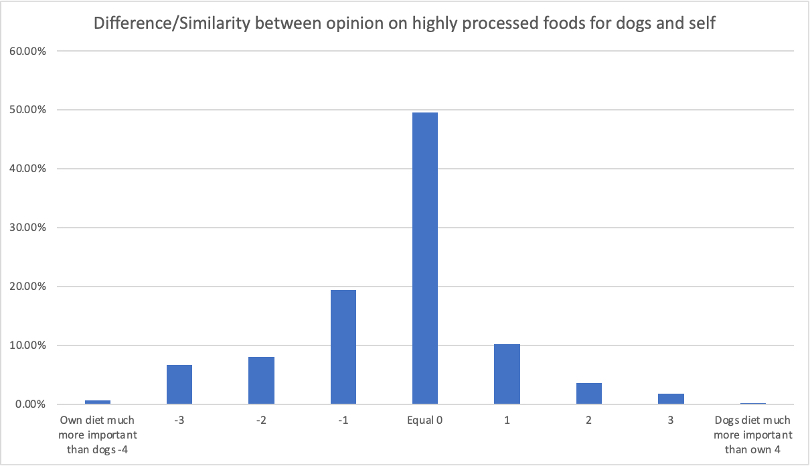The Psychology of Owning a Dog: Dogs as an Extension of Ourselves
It’s well understood that as dog owners, most of us form a deep emotional bond with our dogs, many to the point that dogs become an integral part of our families. In both an emotional and social sense, family dogs become an extension of us. But how can this be explained and what are the implications?

The concept of the extended-self
The theory of the “extended self” in psychology was developed by Russell Belk, a consumer behaviour researcher, in the late 1980s. The theory suggests that individuals often incorporate external objects and possessions into their self-identity. This can be summed up as “we are what we own”; we are the sum of all our possessions, family and our environment.
Belk proposes that people use possessions to define and express who they are. For example, the type of car you drive, the clothes you wear, or the art you hang on your walls can all be seen as extensions of your self-identity. In the pet industry we understand this as what pet you choose to buy, and the products you then buy for your pet.
Dogs as part of our extended-self
Dogs are an extension of us on all three of Belk’s proposed levels:
- Individual
- Family
- Community
On the individual level; dogs can represent a manifestation of a person’s self-concept. This is linked to another concept of conspicuous consumption in which people buy things that they feel represent them. This is best observed with people being attracted to “status dogs” – by owning that dog, the owner gains a social status by implication. On the family level; this is far more straight-forward in that dogs become part of our family unit, sharing our space and special moments. In the community level; dogs can facilitate people to connect to the wider community. Like being part of a dog ownership club like the Kennel Club, breed clubs, or mixing with other dog owners on dog walks and at training classes.

How does this affect the way we buy things?
The concept of the extended self has implications for consumer behaviour. People may buy products or choose brands that align with their self-concept or the image they want to portray to others. Goods designed for this purpose are known as Veblen goods. This concept traces back to the American Economist and Sociologist Thorstein Veblen; who in 1899 identified certain goods as being more likely to be purchased to show off to their peers; known as “conspicuous consumption”. This is an expression of value; where individuals can communicate aspects of their identity, values, and social affiliations to others through the products they buy. Products empower consumers to express value, making public statements about self-image, social-status, and identity (Carruthers, 2013).
For dog owners, this can relate to the kind of food that they buy; owners that want their dog to look their best with a shiny coat, pearly white teeth and a perfect body shape will choose a food that make these outcomes more realistic. For some dog owners, these goals are not as important so they will choose a different type of food. However, it is common for dog owners to feed the same foods for different reasons, perhaps choosing the same foods for behavioural reasons or due to allergies.
Dogs as part of our culture
With the rise of social media, consumers are increasingly showing off what they are feeding to their dogs; showcasing their dogs health and their food of choice. Syrjälä (2005) explored the concepts of pets as social-extensions, based on the construct of extended-self in reference to “subcultures” of dog owners. When pets are seen as self-extensions, powerful subcultures can develop, particularly online, which can be linked to the way that dogs are fed, or the breed of dog that people own.

Our choice of food
Food choice of humans has been investigated in detail and has shown to be influenced by many different factors, in particular; attitudes about a certain food, health claims and price. Connors et al. (2001), and Shepherd (1999) were able to link consumer food choice as a consideration to the wider family, and the extended self. As such, the premise of consumer behaviour for dog food for a family pet is as an extended-self, subject to an individual; with that individuals’ values and personality, affecting their perception, projecting their own personality onto the dog (Beck and Katcher, 2016).
Latest Research Findings
If we accept that as part of the extended-self, people project their own values onto their dogs. This can be demonstrated in what people eat compared to what they feed their dogs; particularly in their views on ultra-processed foods.
A study of 2,257 dog owners in 2023 (Green, 2023) found strong and clear correlation between people’s views on nutrition for their own diets and for their dogs. Owners were asked for their opinion on eating ultra-processed foods and then separately on their attitudes of feeding their dog an ultra-processed diet.

Data showed that 49.58% of respondents held an identical outlook for dogs and themselves and 79.09% of respondents were within one point of similarity, supporting Schleicher et al.’s (2019) prior findings that 53% of respondents had the same outlook of importance when buying healthy food for their pet versus themselves.
The research showed a slight preference for owners to avoid highly-processed foods for their dogs in comparison to themselves.
Products that match a consumer self-image have a greater probability of purchase, as the purchase contributes to the self-concept. For example, if a consumer sees themselves as caring deeply for their own nutrition, they will have higher motivation to purchase a highly nutritious food for their dog, such as raw dog food, as they want to give their dog the very best food (Schiffman, 2019; Blythe, 2019).
Dodd et al. (2019) found a clear correlation between vegans feeding their dogs a plant diet which can be seen as part of the consumer identity, related to esteem and self-actualisation as part of the extended-self (Garay, 2021). These consumers have rationalised feeding their biologically carnivorous dogs a plant-based diet; likely to be an emotional decision – driven by both conscious and unconscious motivations.
Research carried out by Green (2023) showed a clear correlation between outlooks on their personal consumption of highly-processed foods versus highly-processed dog food options, the correlation can be visualised (see below):

Conclusion – what does this mean going forward?
Overall, the concept of the extended self suggests that our identity is not solely defined by our physical bodies or internal thoughts and feelings; it is also shaped by the external objects and affiliations that we incorporate into our sense of self. This idea has been influential in understanding consumer behaviour for dog food.
As general trends for healthy eating continue to rise, alongside a greater general understanding of nutrition for humans and dogs, economists and other industry experts forecast further growth of natural forms of dog food including raw. For companies like Paleo Ridge, this reaffirms the commitment to nutrition, sourcing and production to offer a minimally-processed species appropriate food for the sake of dogs and their health-conscious owners.







